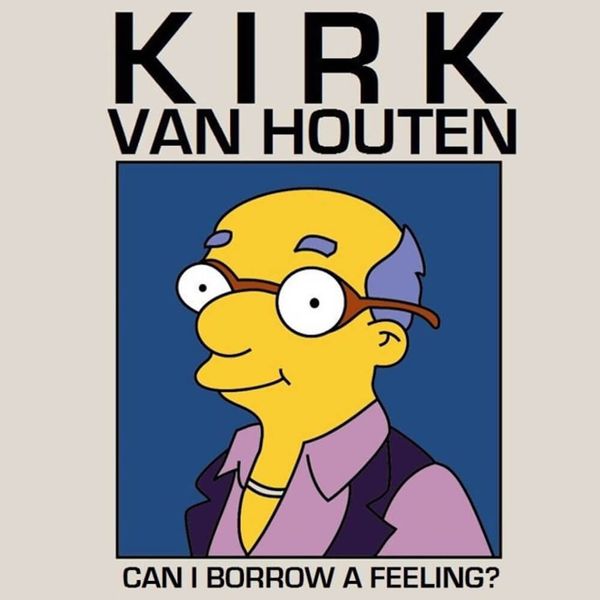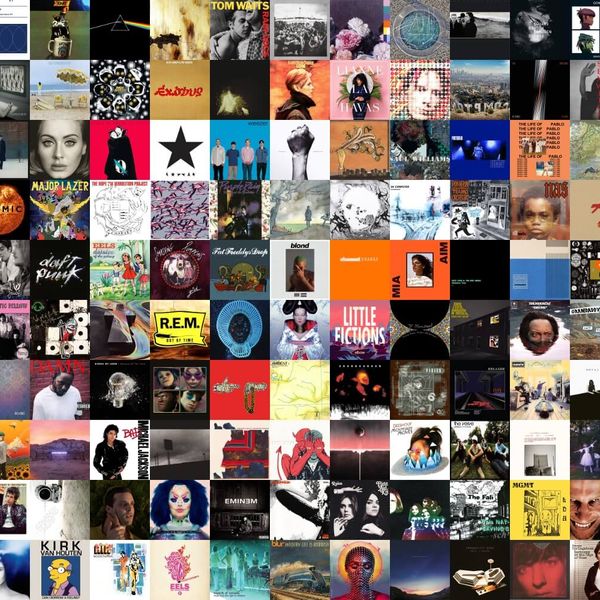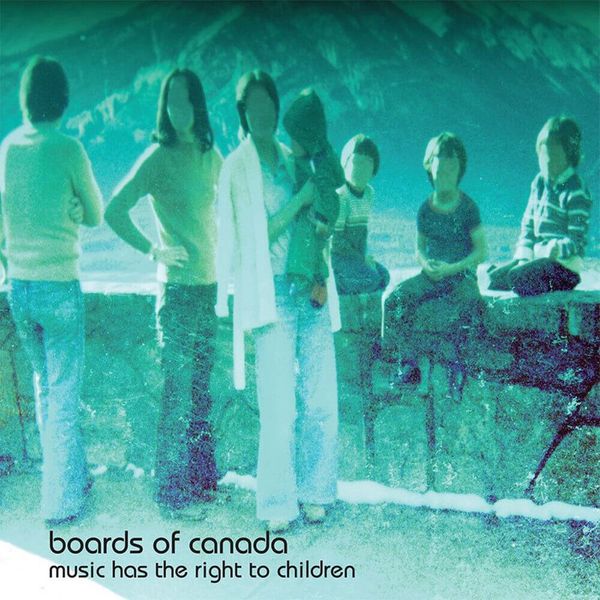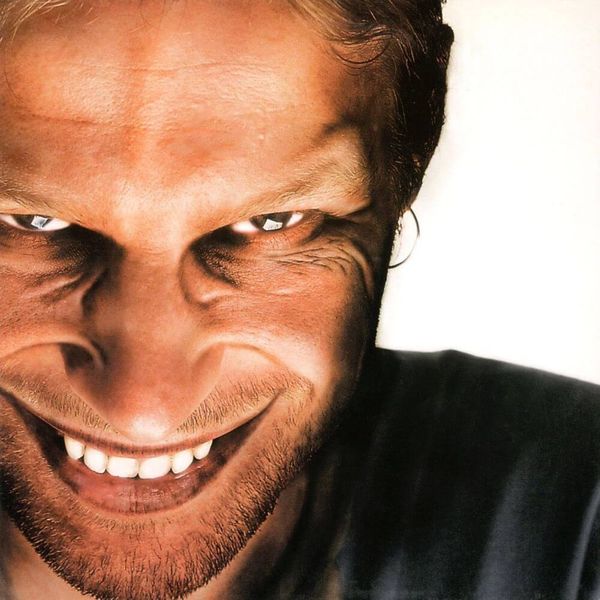André
Ah, the story of Be Sharps. In a word; bittersweet. So much promise, only to end in tragedy. In many ways it’s a narrative that reflects the entire musical output of Springfield itself. The dreary songwriting of Kirk Van Houten became famous for all the wrong reasons, and the less said about Disco Stu’s mixtape the better. The Be Sharps, meanwhile, had the whole World at their feet. “Baby on Board” propelled the quartet to fame in rapid fashion with its sublime vocal harmonies and profound statements on parenthood. It remains one of the greatest Barbershop songs in existence, and arguably one of the most gripping album openers in contemporary music. The Be Sharps were tasked with keeping the same quality throughout on an entire LP, and despite a few hitches along the way, I’d say they rose to the challenge rather well.
Whilst Bigger Than Jesus suffered from a severe lack of focus (starting the album with a 12-minute ambient piece – say no more), Meet The Be Sharps is quite the cohesive package. This is 100% barbershop, in all its glory. Though the level of songwriting doesn’t quite level out from beginning to end, each member of The Be Sharps is on fine form. Barney Gumble shines on “Punch-Drunk Love”, and even bass singer Seymour Skinner finds room to shine on the slightly sketchy “Mother, Oh Mother”. Clocking in at a tight 28 minutes, Meet The Be Sharps doesn’t outstay its welcome, but it does leave the listener wanting slightly more.
“Goodbye, My Coney Island Baby” is a pitch-perfect rendition of the pre-wartime classic, and an ideal way to conclude the record, though you wonder whether that level of ingenuity could have been replicated sooner. Even so, Meet The Be Sharps is a solid debut that showed sparkles of brilliance. Despite the fallouts, lawsuits, and bankruptcies that followed, there was a moment in time where The Be Sharps were the pride of Springfield. In spite of Homer Simpson’s late efforts to restore his career with turgid and frankly banal solo albums, the legacy of the quartet still remains. Oh, what could have been.
7 out of 10
Fred
This was the best thing to come out of Springfield since galoshes. As ambitious as it is effortless, Meet the Be Sharps tells the story of a generation with the voices of angels. Although its follow-up, Bigger Than Jesus, was an epic amongst epics, and in many respects a more well rounded project, there’s nothing quite like the buzz of a debut album that sticks the landing.
There’s a childish, almost brain damage-like simplicity to Homer Simpson’s songwriting, and the group gives the material everything. By and large the record is in the business of soaring, but it’s not afraid to scrape the depths when it has to. “Hard Time Barroom Floor Blues”, a tender ode to the working-hard-or-hardly-working class of America, cuts especially deep. With all its highs and lows Meet the Be Sharps is an album that wrings you dry. It’s an exhausting listen, but a rewarding one – an odyssey in 12 parts.
Much like Syd Barrett and Pink Floyd, Clancy Wiggum’s absence looms large over much of the music, though it’s safe to say The Be Sharps weren’t quite so deferential. The vindictiveness shown by the group at times is truly breathtaking, and I think one of the record’s most overlooked qualities. It’s the crucial nasty streak in an otherwise wholesome, cuddly package. No track showcases this better than “Glad You’re Not Here”. You almost feel bad for Wiggum by the end. Almost. His ill-fated solo collaboration with Brian Eno, One Day From Retirement, showed just how much of a grifter the man really was. Never was an album’s release more prophetic.
Anyway, Meet the Be Sharps is quality barbershop blues, the group’s chemistry undeniable and irresistable. I don’t care how blindsided Wiggum was or how many restraining orders were filed, Barney Gumble was a mercurial talent, the missing piece in the puzzle. And what a puzzle it turned out to be. Between Gumble’s heart, Skinner’s cheek, de Beaumarchais’ all-American charm, and Simpson’s raw sex appeal, superstardom was inevitable.
I do maintain that the studio setting never quite captured The Be Sharps at their mercurial best. The group was such a cultural juggernaut that I think their debut’s somewhat stale production gets glossed over by particularly sycophantic fans. It’s a shame the live recordings of their 1986 Hollywood Bowl gig were destroyed in the ensuing riots, but I suppose legend always suited the group better anyway.
8 out of 10
Andrew
From the humble beginnings in a squalid bar during 1985, The Be Sharps saw a meteoric rise to fame. Their debut, Meet The Be Sharps is the finest of their output.
Clouded by the controversial eviction of Clancy Wiggum on lead, the quartet’s success also made for tough times, and while highlights such as “Baby on Board” and “Hello My Honey” make for timeless works, there’s a lot of filler here. “Col. C. Everett Coop” is low-grade at best and immature at worst, and the B-side “Number 8” from the self-obsessed Barney Gumble is sickening and derivative. It’s clear that much of this material was pushed out during their heavy touring schedule.
Meanwhile, Seymour Skinner’s banjo work is some of the best instrumentation on the album, and pushes “Baby on Board” and “Goodbye, My Coney Island Baby” to immaculate levels of sound at times. It’s no wonder they chose to perform these at their rooftop reunion, far outperforming the new material, “I Pity The Fool”, that they experimented with during their ill-fated appearance on that Dame Edna special.
They may’ve been cast aside as ‘Not’ in Us magazine’s ‘Hot or Not’ feature, and they may’ve only won a grammy for this debut, but there’s some fun to be had for sure. Unfortunately, all this said it’s not an album I can recommend. My ardent support for Clancy Wiggum and the disgust I have for the way he was treated during the early years conflicts with any objective feeling I can have towards Meet the Be Sharps. Pirate it if you must. WIGGUM FOREVER, BARNEY NEVER.
2 out of 10
Marcus
While their name has now been heard so many times as to be totally devoid of humour, The Be Sharps’ discography remains as two of the most enduring blues albums of the past century. Meet The Be Sharps, a soul-quaking, heart-rending, bowel-voiding romp through 12 inimitable classics, never suffered the ignominy of Bigger Than Jesus but has, like its successor, grown exponentially in popularity and critical acclaim nonetheless.
“Baby on Board”, arguably the band’s most iconic track, features some of the richest and most melodious harmonisations of four men since John, Mark, Luke, and Matthew collaborated on their bestselling project some 2,000 years ago. Naturally I’m set to draw fire from the increasingly diminished pool of Be Sharps naysayers by making this religious allusion but, frankly, anyone disputing that the group really were bigger than Jesus needs to brush up on their history.
“I Left My Family Sedan at Moe’s”, featuring a young Flea, is a welcome injection of funk and features Clancy Wiggum (uncredited and sampled from a pre-signing recording) in a poignant flash of brilliance that makes one wonder what might have been. This moment of reflection is, of course, to be expected in that, as with so many of the most important bands of modern music, there is a melancholy to the experience triggered by the knowledge that the true Fab Four were so early doomed.
Any suggestion that their demise was brought on by Barney Gumble’s relationship with Kako (co-writer of the oft-maligned “Number 8”), and the welling pretence that marked the end of his career, is nullified by “What is Fudd?”, a pioneering surrealist solo performance by Gumble towards the end of the album. The track, now famously indicative of Gumble’s frenetic genius, may have derailed the whole album if not for the joking affirmation by his bandmates that the song was written and recorded while he lay semi-conscious, floating in perfume, and served in a man’s hat.
While some would cite Barthes in stating that an artist may not influence their art post-publication, The Be Sharps are at their best when taken as an oeuvre, as a movement, as a cultural embodiment of all that is beloved. Listening to the accompanying CD featuring the band in conversation with Jerry Seinfeld is therefore as vital as the album itself, lending the context and character necessary for The Be Sharps to reach every facet of your soul.
10 out of 10



